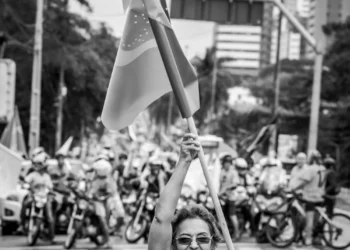by Nathália Zaparolli
Reviewed by Matheus Lucas Hebling
Introduction
This essay analyzes the development of the Science, Technology, and Innovation Policies (STIP) of the current Ministry of Science, Technology, and Innovations (MSTI) of the Federative Republic of Brazil from 2000 to 2021 in dialogue with the 2030 Agenda and the impact of the pandemic period of COVID-19.
It was motivated by the interest in discussing a topic so important for the development of countries today, which is the promotion of science, technology, and innovation. And with the arrival of the pandemic, this sector became even more evident.
We present the main aspects of the Brazilian STIP of the 21st century, then how it dialogues with the 2030 Agenda, pointing out the dire consequences due to the current government, especially in the pandemic context.
Science, Technology, and Innovation Policies from 2000 to 2021
This research cuts relation to the science, technology, and innovation (STI), we address here the national documents where the goals for the development of the Brazilian STI in the period from 2000 to 2021 are located.
Thus, in the period from 2000 to 2007, we find the guidelines for the development of the STI in the Pluriannual Plans (PPA), which is the medium-term governmental planning instrument, provided for in Article 165 of the Federal Constitution of 1988 that establishes, in a regionalized manner, the guidelines and goals of the Public Administration organized in programs, structured in actions, which are translated into goods and services for the population. The PPA has a duration of four years. It contains in detail the attributes of the public policies implemented, such as physical and financial targets, recipients, products to be delivered to society, etc.
In addition to being part of the PPA, the government of President Dilma Roussef formulated the so-called Science, Technology, and Innovation Action Plan, to be implemented between 2007 and 2010. It establishes a State policy since these are issues that go beyond governments and are interministerial. The main objective is to define a wide range of initiatives, actions, and programs to make the role of STI more decisive in the sustainable development of the country (Ministério da Ciência e Tecnologia, 2007). And then we had the 2nd Action Plan for Science, Technology, and Innovation, from 2011 to 2014. So, there is an initiative to promote a medium/long-term action plan.
In 2011, the MSTI formulated the document National Strategy for Science, Technology, and Innovation, with projects, plans, policies, goals, and objectives to be implemented from 2012 to 2015. The main guideline is to combine universal quality education, scientific research, innovation, and social inclusion. Renewable energies, preservation of biodiversity, actions against climate change, sustainability are key guidelines (Ministério da Ciência, Tecnologia e Inovação, 2011).
In 2016, the National Strategy for Science, Technology and Innovation 2016-2022 was launched, whose subtitle is Science, Technology, and Innovation for Economic and Social Development. It emphasizes the role of innovation in generating economic development. The generation of employment, wealth, income, and opportunities, with productive diversification and increased added value in the production of goods and services, depends directly on strengthening the country’s research and innovation capabilities (Ministério da Ciência Tecnologia, Inovação e Comunicações, 2016).
Based on the guidelines contained in this document, 12 Action Plans were developed focusing on specific areas, such as Health, Human and Social Sciences, Biomes, Technological Extension for Social Inclusion, etc. In this case, the Plans and the National Strategy were intentionally developed in line with the 17 Sustainable Development Goals of the 2030 Agenda, including the signing of a memorandum of understanding between the Ministry and the United Nations Development Program for cooperation in areas of common interest
In 2021, the National Innovation Strategy and the Action Plans for the axes of Promotion, Technological Base, Innovation Culture, Market for Innovative Products and Services, and Educational Systems for the period 2021 to 2024 were approved in CI Resolution no 1 of July 23, 2021.
The 2030 Agenda in Dialogue with Brazilian Science, Technology, and Innovation Policies
The 2030 Agenda is an action plan developed by the United Nations that aims to eradicate poverty and promote economic, social, and environmental development worldwide in 2030 through concrete and time-bound goals. Brazil agreed to adopt the Agenda’s measures, but only adapted the goals to our reality and the conditions to implement them, the Institute for Applied Economic Research elaborated on this document in 2018.
There are 17 goals called Sustainable Development Goals: poverty eradication; zero hunger; good health and well-being; quality education; gender equality; clean water and sanitation; affordable and clean energy; decent jobs and economic growth; industry, innovation, and infrastructure; reducing inequalities; sustainable cities and communities; responsible consumption and production; combating climate change; life underwater; life on land; peace, justice, and strong institutions; partnerships to achieve the goals.
As can be seen, policies from 2000 to 2015 were already outlined with a concern for sustainable development. We cannot forget the Millennium Development Goals also elaborated by the United Nations in 2000.
The 2016-2022 National Strategy was the official milestone of the commitment to the 2030 Agenda. Thus, we can say that the Brazilian strategic plans for STI intrinsically dialogue with the 2030 Agenda, to some extent with the 17 objects proposed therein.
Therefore, in specific reference to STI, we can extract that, in the letter of the law, so to speak, the commitment to the Agenda was maintained, even this year the document of the National Innovation Strategy 2021-2024 was approved. However, there were no concrete conditions for the federal government to support its applicability, as can be seen in the reduction of the budget of the Ministry of Science, Technology and Innovations, a reduction of 29% from 2020 to 2021, while from 2000 to 2015 the budget suffered minor alterations.
Another sign of this was the presidential veto to the adoption of the Sustainable Development Goals as a guideline for the PPA 2020-2023, and our non-participation in the Escazú agreement.
With the COVID-19 pandemic, Brazilian structural problems have worsened and there is little political will on the part of the establishment to overcome adversity. The 2030 Agenda will be maintained in the country, we risk saying, at least in this scenario in which we find ourselves, only through the efforts and pressures of society.
Conclusion
Synthetically, this research shows the analysis of documents that promote scientific, technological, and innovative development in the medium and long term. We have the federal plans and throughout these two decades, there were processes of decentralization of the STIP, allowing states and cities to adapt them to their realities. As can be seen, throughout the years up to 2016, these policies had sustainability, cooperation, and the promotion of economic and social development as pillars.
However, especially after the “impeachment” in 2016, when Vice President Michel Temer took office, and subsequently with the rise of Jair Bolsonaro in 2018, we observed setbacks in investments in the areas of science, technology, and innovation; reduction of Brazil’s participation in international meetings, conferences, and agreements related to sustainable development and environmental protection. With the arrival of the COVID-19 pandemic, the political, economic, and social situation of the country has become even more delicate and difficult to follow the 2030 Agenda.
References
Ministério da Ciência e Tecnologia. (2007). Ciência, Tecnologia e Inovação para o Desenvolvimento Nacional: Plano de Ação 2007-2010 Resumo. Brasília/DF.
Ministério da Ciência, Tecnologia e Inovação. (2011). Estratégia Nacional, Tecnologia e Inovação 2012-2015: Balanço das Atividades Estruturantes. Brasília/DF.
Ministério da Ciência Tecnologia, Inovação e Comunicações. (2016). Estratégia Nacional de Ciência, Tecnologia e Inovação 2016|2022: Ciência, Tecnologia e Inovação para o Desenvolvimento Econômico e Social. Brasília/DF.
Nathália Zaparolli is a PhD candidate in the Postgraduate Program in Political Science at the Federal University of São Carlos (UFSCar). Earned her master’s degree from the same institution in the area of Science, Technology and Inovation Policy and Elites Analysis. Has a Bachelor’s degree in Social Sciences from UFSCar, with emphasis on Political Science and Sociology. Has a Teacher’s Degree in Social Sciences from UNESP – FCL Campus. Research focuses on the areas of Public Policy, in particular Science and Technology Policy; Economic, Scientific and Technological Development; Elites Studies.
Zaparolli, Nathália. 2022. "The 2030 Agenda in dialogue with Science, Technology and Innovation Policies for the 21st century in Brazil". Brazilian Research and Studies Blog. ISSN 2701-4924. Vol. 3 Num. 1. Available at: https://www.bras-center.com/the-2030-agenda-in-dialogue-with-science-technology-and-innovation-policies-for-the-21st-century-in-brazil/, accessed on: July 8, 2025.








